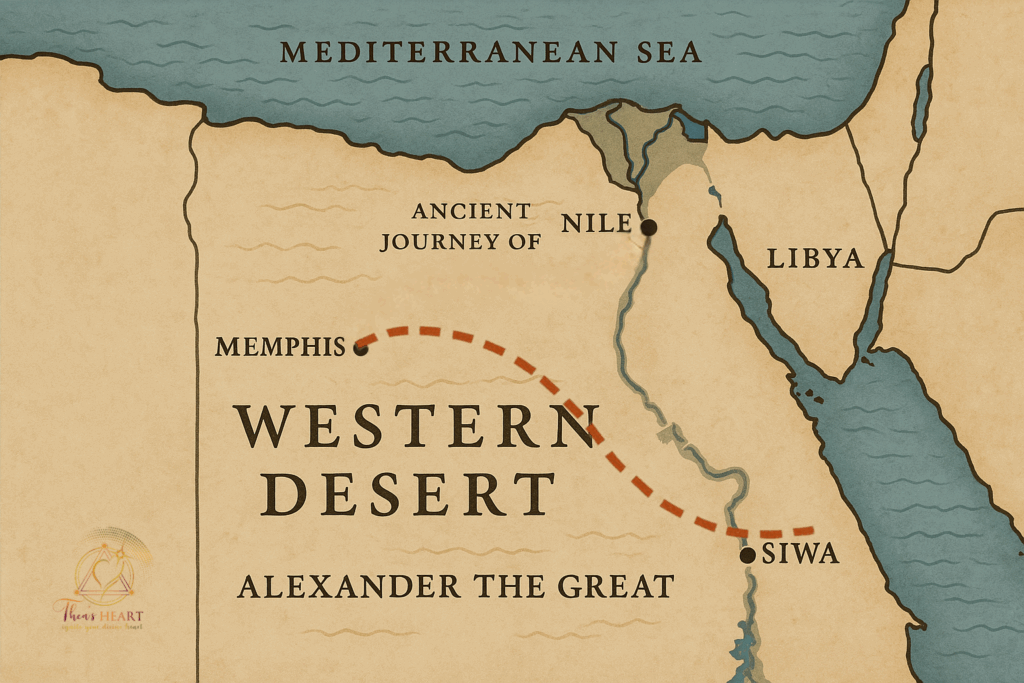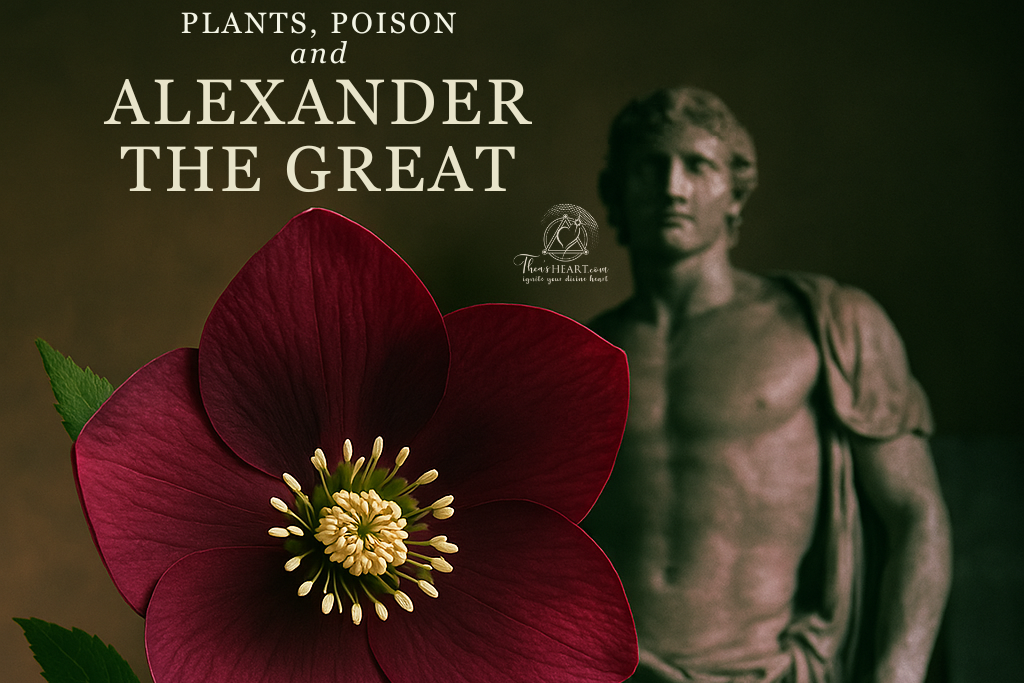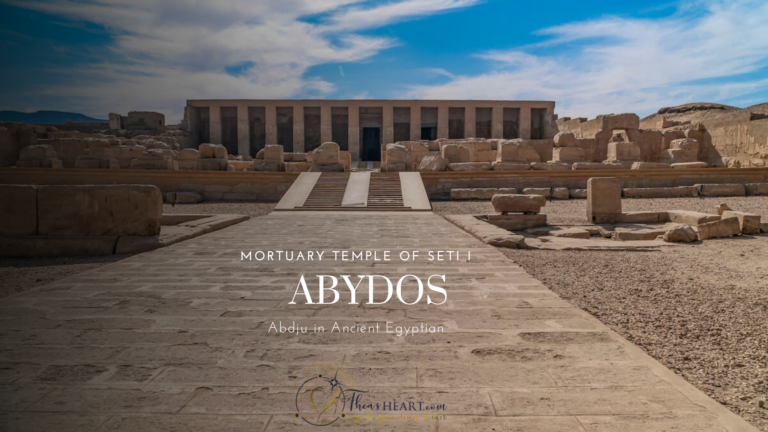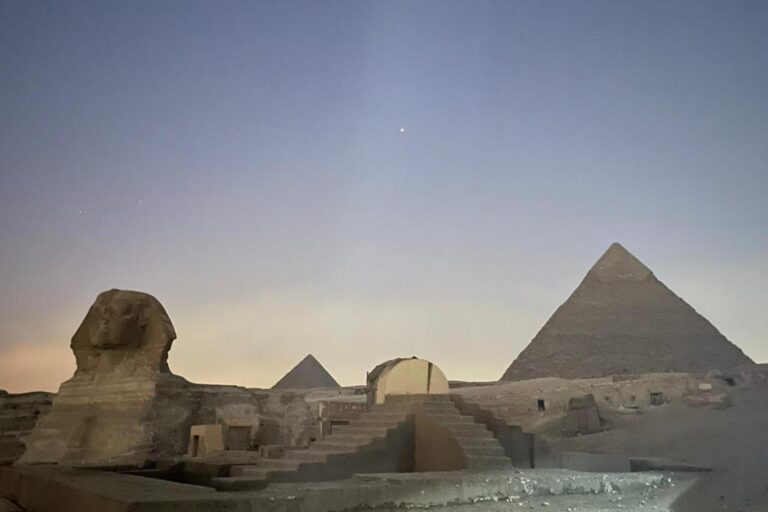Plants, Poison, and Alexander the Great
If I told you that I was tending to my garden of hellebores, checking each nodding flower to see if seeds had set, when—bam!—a 4th-century Macedonian king suddenly invaded my thoughts, would you believe this? Three words—Alexander the Great—swept through my mind disrupting my concentration. It felt like an invitation to learn more about this young man who ruled a vast empire stretching from Greece to northwestern India—including Persia, Egypt, and parts of Central and South Asia.
If you’ve taken my Goddess courses, you’ll recognize Alexander’s role in shaping Egypt’s sacred spaces. And if you joined me on the Starseed Egypt Adventure 2024, you might recall our time at Kom Ombo, where I shared his trek to meet with the priests at Temple of Amun in Siwa. Over the past spring, the potential connection between plant and ruler intrigued me, leading me to deepen my research. If you’re new here, welcome—this journey is full of unexpected discoveries, and I invite you to explore alongside me. Here is what I found.
Alexander the Great did not merely march across continents—he shaped reality through military strategy and by supporting the religious ideology of the regions he sought to control. His empire was not just land and armies; it was a manifestation of belief, prophecy, and the unseen forces that guided his hand. But what happens when a man who commands fate finds himself at its mercy?
Oracles and Divine Association
The ancients understood something we often forget: the veil between the physical and the divine is thin. Alexander knew this. The temple oracles were sought, council was given, and the gods’ favor—so it seemed—rested upon his military destiny. But was it truly God’s will, or merely the illusion of divine approval?
It was said that Alexander the Great, like his father before him, sought the wisdom of the renown Oracles at Delphi. Legends from 336 BC, whisper that he dragged the Pythia to the temple, demanding knowledge of his military campaign’s fate in Persia. While he wasn’t given a specific military answer, she exclaimed, “You are invincible, my son.” Hearing this, he was satisfied. This was more than mere superstition—he understood that prophecy, when wielded strategically, could shape both perception and power. His actions, whether myth or historical fact, created a narrative that Alexander was favored by the gods.
According to author Peter Sommer, over the course of Alexander’s military campaign, he and his troops marched 22,000 miles over 12 years. Along the way, Somner states he sacrificed a bull, poured libations, when entering Troy, he ran naked after anointing himself in oil to lay a wreath at the legendary warrior Achilles. And in Asia Minor, he climbed to the temple of Athena for which he donated his suit of armor.

Alexander the Great’s ambitions extended beyond conquest—he understood the power of divine associations. He sought the guidance of oracles, invoked the names of gods and goddesses, and strategically aligned himself with sacred spaces to reinforce his legacy.
When Alexander marched his troops into Ephesus, Turkey, the people refused his proposal to dedicate a temple in his honor. The temple in question was the Temple of Artemis, one of the Seven Wonders of the Ancient World. The Ephesians believed that a mortal ruler should not be honored in a sanctuary dedicated to Artemis, the revered goddess of the hunt and fertility.
However, in Priene, Alexander found a different reception being the lessor city to Ephesus. The city accepted his sponsorship, and allowed him to dedicate a temple to Athena Polias. Around 330 BCE, Alexander funded the Temple of Athena, reinforcing his image as a protector of Greek cities and a champion for their religious traditions. The Priene Inscription, discovered in the ruins of the temple, records this dedication.
At the time of his journey to Siwa in 331, Alexander had already conquered Egypt. His campaign in the region was largely complete, and he had been welcomed as a liberator by the Egyptians, who resented Persian rule. His journey to the Oracle of Ammon in Siwa was not a mere pilgrimage; it was a declaration. He crossed Egypt’s vast expanse with his soldiers and guides, not just to hear the priest’s words, but to become the prophecy itself. Was it faith, or was it strategy?
The journey to Siwa was grueling, spanning approximately 350 miles (560 kilometers) from Memphis through the Western Desert—a land of shifting sands, scorching heat, and treacherous terrain. Ancient accounts suggest it took several weeks, by foot and camel, though exact records are unclear. Some legends claim divine intervention guided Alexander’s army when they lost their way, with ravens or serpents appearing to lead them forward or when they ran out of water, they received rainfall (University of Birmingham, 2014). The dangers of the desert were well known—50,000 Persian soldiers sent by Cambyses II to destroy the oracle vanished in a sandstorm centuries earlier, according to Herodotus. His arrival at Siwa did more than satisfy a spiritual quest; it reinforced his legitimacy as a ruler. The priests declared him the son of Zeus-Ammon, solidifying his claim to divine favor. This moment shaped his legacy, linking Macedonian rule to Egyptian tradition.
Alexander’s ability to navigate religious traditions—whether through acceptance or rejection—was a testament to his strategic brilliance. His sponsorship of temples throughout his military campaign was not just an act of devotion but a calculated move to secure loyalty and legitimacy across his empire. After his victory at the Battle of Granicus in 334 BCE, he dedicated 300 suits of Persian armor to Athena in Athens – the patron goddess of wisdom and warfare. This dedication was both a religious offering and a political statement, reinforcing his leadership and unity among the Greeks while excluding Sparta, which had refused to join his campaign.
Legacy of the Siwa Oracle
Alexander’s visit to Siwa influenced the rest of his life. It shaped his actions, deepened his self-perception as a semi-divine ruler, and ultimately isolated him from his men. His belief that he was destined to rule the world had been reinforced, but the consequences of such conviction—paranoia, strained relationships, and betrayal—would ultimately play a role in his downfall.
Alexander’s ability to navigate religious traditions—whether through acceptance or rejection—was a testament to his strategic brilliance. His sponsorship of temples was not just an act of devotion but a calculated move to secure loyalty and legitimacy across his empire.
From Delphi to Siwa, from Athena’s temple in Priene to the rejected offer at Artemis’ shrine, his interactions with the divine were deeply tied to his rule and in some ways, the myth became a reality his inner circle may not have believed.
Divine Kingship and the Strain on His Companions
Did Alexander The Great drink the Divine juice being served by the Oracles? After Siwa, he adopted Egyptian customs, accepted divine honors, and allowed himself to be portrayed on coins with the ram’s horns of Zeus-Ammon, visually signaling his semi-divine status. (The Collector, 2022).
Alexander’s increasing identification with the gods began to create tension among his closest advisors and generals. While Egyptians accepted their rulers as divine, Macedonians and Greeks did not. The act of proskynesis, a form of reverence where subjects bowed before a ruler, was customary in Persian and Egyptian traditions—but Alexander’s Macedonian officers viewed it as reserved only for the gods. His insistence on receiving such honors led to deep resentment among his inner circle, creating fractures within his command.
The effects of Siwa’s prophecy went beyond diplomacy. Some ancient sources suggest that Alexander’s belief in his own divinity contributed to growing paranoia and unpredictability. His reign became marked by increasingly ruthless decisions, including the execution of trusted officers and violent reactions to perceived betrayals. His spiritual transformation fed into his shift toward autocracy, moving away from Macedonian traditions and toward an absolute ruler’s mindset.
Death in Babylon: Poison or Fate
Alexander the Great did not die quietly. His final days were a slow descent—an unraveling of the force that had propelled him forward. His lingering death in Babylon at the age of 32 remains one of history’s great mysteries. Some claim illness took him, while others whisper of foul play.
According to research conducted by a toxicologist at the University of Birmingham, Alexander’s slow deterioration over twelve days, as documented in his court diary from a wedding he attended, closely matched the symptoms of Veratrum album poisoning—a deadly plant that could have been discreetly slipped into his drink. Known as the “Spiked Drink Theory,” the hypothesis suggests that his wine may have been laced with Hellebore, leading to his untimely demise.
Hellebore poisoning can be fatal, with symptoms that include intense gastrointestinal distress, vomiting, severe abdominal pain, respiratory failure, and cardiovascular complications. The active toxins in Hellebore disrupt cellular ion channels, leading to dangerous imbalances in electrolytes that can cause heart arrhythmias and, ultimately, death (Lee 1985). Given Alexander’s reported symptoms, this theory remains plausible.
Many great conquerors meet violent ends. To conquer the Persians, Darius III fled, and Alexander pursued but Darius did not fall by Alexander’s hand-he fell by betrayal from his own soldiers who stabbed him to death. Some, like Julius Caesar, are struck down by those they trust. Others, like Adolf Hitler, choose death by suicide over defeat. Whether Alexander was poisoned or merely succumbed to illness, one truth remains: conquest on a grand scale always comes at a price. We are reminded that history repeats itself. Empires rise and fall, conquerors push boundaries until they break. Alexander reshaped the world, but at what cost? His vast empire fragmented after his death, his generals fought over the spoils, and his name became legend—but never a kingdom.
Works Consulted:
Arrian. The Anabasis of Alexander. Wikisource, Book 1. Retrived from [https://en.wikisource.org/wiki/The_Anabasis_of_Alexander]
Lee, M. “Toxicity and Effects of Helleborus in Historical Poisoning Cases.” Journal of Botanical Medicine, vol. 12, no. 4, 1985, pp. 214-229.
Priene Inscription of Alexander the Great. British Museum. Retrieved from [https://www.worldhistory.org/article/925/alexander-the-great-as-a-god/]
Sommer, P. (2014). Turkey: In the Footsteps of Alexander. World Archaeology. Retrieved from [https://www.world-archaeology.com/features/turkey-in-the-footsteps-of-alexander/]
Temple of Athena Polia at Priene. Pagan Places. Retrieved from https://paganplaces.com/places/temple-of-athena-polia-at-priene
The Collector Editorial Team. (2022). What Happened When Alexander the Great Visited the Oracle at Siwa? Retrieved from [https://www.thecollector.com/alexander-the-great-oracle-siwa/]
University of Birmingham. “Alexander the Great: A Case for Poison?” Birmingham Medical Journal, 2014.
University of Birmingham. (2014). Spiked Drink Theory Sheds New Light on Alexander the Great’s Death. Retrieved from [https://www.birmingham.ac.uk/news-archive/2014/spiked-drink-theory-sheds-new-light-on-alexander-the-greats-death]
Wasson, Donald L. “Alexander the Great as a God.” World History Encyclopedia, 28 July 2016, https://www.worldhistory.org/article/925/alexander-the-great-as-a-god/
©2025 Thea’s Heart, LLC™ – All Rights Reserved.




